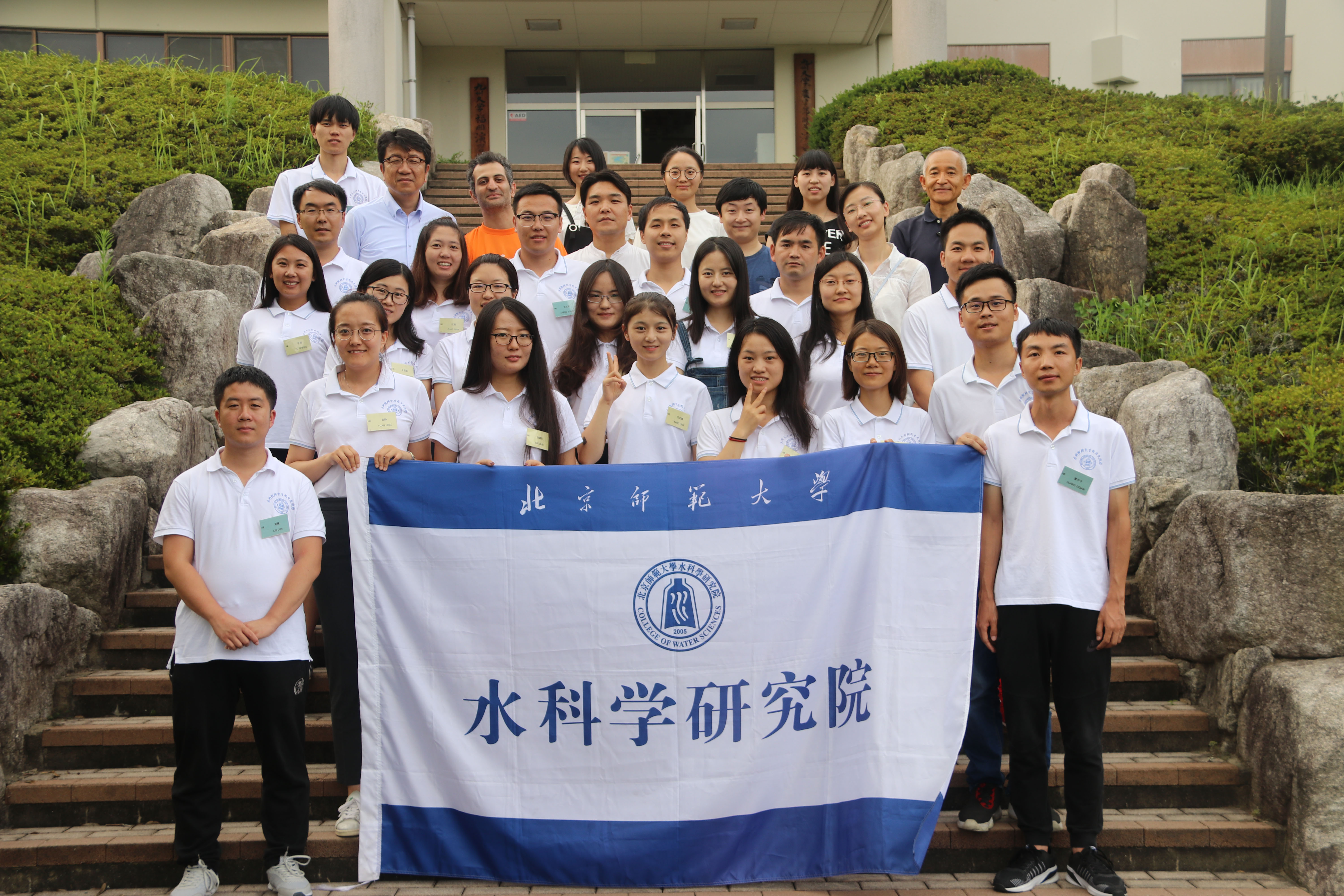In a bid to further advance the construction of the "Double First-Class" initiative, improve the scientific research & practice capabilities of postgraduates, continuously broaden the international vision and cultivate top innovative talents, the College of Water Sciences has selected 20 outstanding doctoral candidates and postgraduates to carry out the professional learning and exchanges in Kyushu University and
Institute of Integrated Geophysics of Japan from July 18 to 30.
During the two-week learning, members of the Exchange Group have studied the program course ofWatershed Hydrology and Water Resource Management; attended the series of cutting-edge lectures on hydroscience; and understood and mastered the research status and academic viewpoints of Japanese scholars in fields like forest environment protection, biodiversity-ecological monitoring, functions of rivers and underflows and water resource management model. Adhering to the principle of combining theoretical study with scientific research practice, the Exchange Group has organized and implemented field studies, visits and investigation activities of rich contents. Members visitedUminonakamichi Nata Seawater Desalination Center, Chikugo Weir andGokayama Dam to understand Japanese experience in and measures for sea water desalination process, water disaster treatment and ecological protection. Meanwhile, the Exchange Group has successively visitedFukuoka Niujing Water Purification Plant,Sewage Treatment Plant in Western Japan, Jianjun Groundwater Source Field in Kumamoto PrefectureandSuntory Aso Plantto gain an understanding of the local water resource use & management and water treatment application technology. Based on the learning and investigation, members of the Exchange Group have developed a special investigation report themed "Comparative Research into the Differences and Similarities between Beijing and Fukuoka Metropolitan Areas on Water Resource and Environmental Cure" and completed the subsequent presentation. Contents reported have included four aspects, namely water resource within the basin, water resource outside the basin, underground water and sea water desalination and sewage treatment. The research results have been highly affirmed by Japanese scholars. In addition, the Exchange Group has conducted the practice of geology in Aso Volcano Museum to understand the relevant topography and geology, lithology structure and eco-environment of the volcanism in Japan; and worked as interns in the Research Institute for Humanity and Nature to probe into the theoretical methods and related accomplishments of environmental studies of Japan, and learn from Japan's instrumental experience in environmental protection.
The learning and exchange in Japan this time are important components of the College of Water Sciences in improving the scientific research capability of postgraduates, and also a beneficial attempt of the college to elevate the internationalized education, which have greatly promoted the academic exchanges among postgraduates, increased the new momentum of scientific research, stimulated new thoughts for scientific research and acquired new methods of scientific research. Students have expressed that this learning and exchange activity has been so impressive, and the learning exchange and cultural experience in Japan have enriched their knowledge, expanded their horizon and facilitated their growth.
